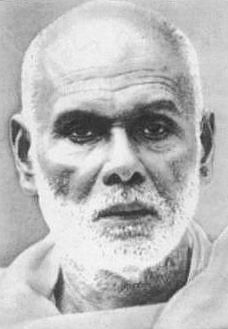Kerala reformation movement
This article needs additional citations for verification. (February 2017) |
The reformation movement in Kerala refers to a socio-cultural shift that began in the late 19th century, resulting in significant transformations in the social fabric of the southern Indian state of Kerala.
Background
The foundations of social change in Kerala can be traced back to the 16th century. The emergence of the Bhakti movement and the development of the modern Malayalam language and the influence of figures like Thunchaththu Ezhuthachan led to the breaking of Brahmin dominance over literature and knowledge.
The arrival of European powers, including the Portuguese, Dutch, and English, played a significant role as catalysts for these changes. The arrival of missionaries from Europe contributed to the establishment of educational institutions in Kerala.
Unlike the four-fold
The political landscape of Kerala underwent significant changes with the establishment of centralized monarchies in Travancore and Cochin, leading to the decline of the feudal order. The Mysorean invasion of Kerala (1766–1792) further disrupted the existing caste hierarchy. Although the Mysoreans attempted to establish an Islamic state in Malabar, their advances were ultimately thwarted by the British.[5][6]
In contrast to northern India, the reformation in Kerala was driven by the lower castes. Prominent reformist leaders such as Narayana Guru and Ayyankali hailed from castes that were deemed backward in the social hierarchy of 19th century Kerala. Consequently, leaders like Guru and Ayyankali focused on the abolition of the caste system rather than its reformation.[7]
Leaders
Prominent leaders of Kerala reformation include :
- Narayana Guru
- Chattampi Swamikal
- Ayyankali
- Sahodaran Ayyappan
- Padmanabhan Palpu
- Kumaran Asan
- Mannath Padmanabhan
- Ayyathan Gopalan
- Brahmananda Swami Sivayogi
- Vagbhatananda
- Nitya Chaitanya Yati
- Nataraja Guru
- VT Bhattathiripad
- Kuriakose Elias Chavara
- C. V. Kunhiraman
- Sayyid Sanaullah Makti Tangal
- Vakkom Moulavi
See also
References
- ISBN 9788120601710.
- ^ A. Sreedhara Menon (1976). Kerala District Gazetteers: Palghat. Department of Education, Superintendent of Government Presses, Kerala. p. 159.
- ISBN 9781108424387.
- ^ Manjalloor, Dr. Michael (November 2015). "Case Study of the Dalits of Kerala, India" (PDF). CORE (research service). Retrieved 24 December 2022.
- ^ "Why Christo-Racist Nationalism and Anti-Muslim Rhetoric Are Gaining Ground in Kerala". The Wire. Archived from the original on 3 October 2022. Retrieved 15 June 2021.
- ^ Innes, Charles Alexander (1908). Madras District Gazetteers Malabar (Volume I). Madras Government.
- ^ PANIKKAR, K. N. (15 February 2017). "Three phases of Indian renaissance". Frontline.thehindu.com. Archived from the original on 28 April 2021. Retrieved 4 March 2019.
- R.Ponnu, Sri Vaikunda Swamigal and the struggle for Social Equality in South India, Madurai, 2000.

